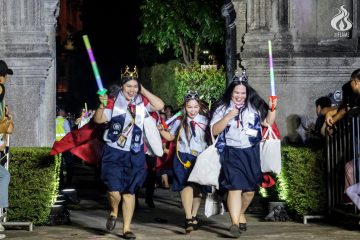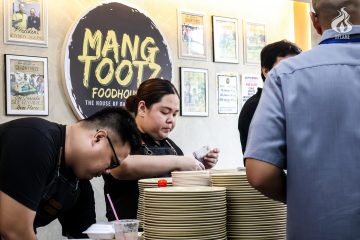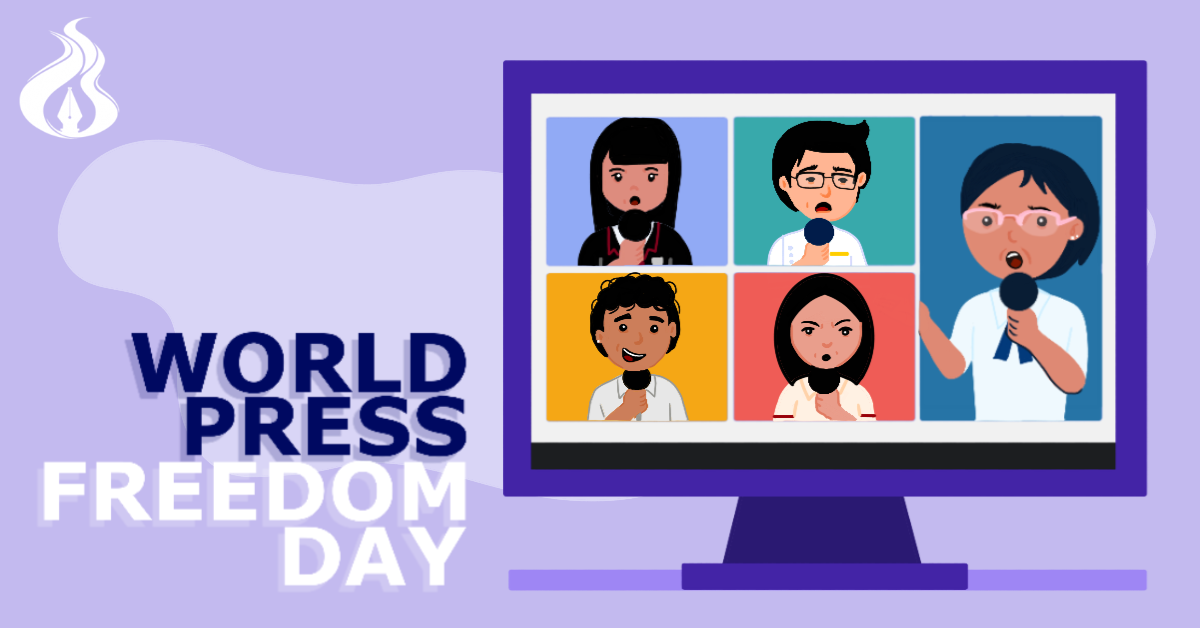
TO COMMEMORATE the importance of journalists, the United Nations had declared May 3 to be World Press Freedom Day. This day acts as a reminder to both the government and citizens to respect press freedom and defend journalists from restraint and abolition.
This year’s theme; “Information as a Public Good” highlights the importance of information as a service to the people and of finding new ways to strengthen journalism amid a changing media environment.
Press freedom in the Philippines has remained under constant threat over the years. With the current administration, there have been multiple unrelenting attacks from the government against the media through bold and brazen means—the ABS-CBN shutdown, Anti-Terror Bill, the conviction of Rappler CEO Maria Ressa, and condemnatory statements from President Rodrigo Duterte himself.
To reiterate the timeless message of valuing press freedom and media workers, The Flame featured five students from different programs at the University of Santo Tomas on what press freedom means to them.
Alliah Grace Gubangco, AB Economics
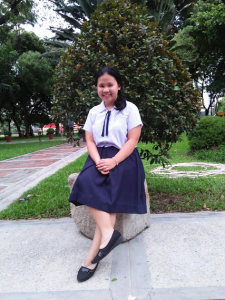
For Alliah Grace Gubangco, a third-year Economics student and Vice Chairperson for AB Economics Society COMELEC, press freedom is a way to attain factual information about global events.
“Press freedom is the pathway of truth in the society, wherein through the media practitioners, people are able to see what is really happening around them. Here, having information lets an individual analyze the events, decide, partake, and act, thus, giving them the essence of being part of the community,” she said.
Gubangco said that the media motivates her to become proactive in making a stand against society’s injustices.
“For me, it gives me a sense of awareness that there is something to act upon, such as the injustices in the society. It also becomes an avenue for me to practice my concern for humanity and critical thinking since I see different sides of stories,” she added.
Ryo Villeza, Engineering, Mechanical Engineering
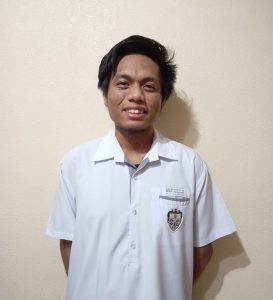
Ryo Villeza, a third-year mechanical engineering student, similarly viewed press freedom as a requisite that helps the public be informed on current events and prompts them to take proper action.
“Press freedom is one the basic necessities in a democratic country such as the Philippines. It allows anyone to convey information in any media without any restrictions. This is important because the public has the right to know about the current issues,” he said.
“Knowing means being able to take the proper action accordingly. It lets you adapt with scenarios you wouldn’t know otherwise without the ability to freely accept information,” he added.
Villeza also said he is less ignorant about the significant issues thanks to the thorough journalists’ coverage and sacrifices.
“Take for instance the COVID pandemic. Everyday I check the new cases and how much have they grown compared to the past days and months. It makes me aware [of] what the government is currently doing and what they’re lacking in solving the issue,” he said.
Gwyneth Faith Ty, BS Hospitality Management

Gwyneth Faith Ty, a third-year student from the BS in Hospitality Management majoring in culinary entrepreneurship, expressed the essence of how press freedom serves as a medium for the voiceless and makes journalists aware of their political stand.
“It promotes a platform for the voices that need to be heard. It also encourages us to stand with the oppressed and continues to challenge the government with [its] propaganda. It also makes you aware of your political stand, which always matters because being neutral about your bureaucratic belief is also standing with the oppressor,” she explained.
She shared that the media affects her daily life as it helps her become politically aware of current and sociopolitical issues.
“Media will influence your ethical decisions because it will make you gain consciousness, a new dialogue, and be aware of the community that makes us engage with people more. It also makes us have an ambition to pursue a better future in our country,” she said.
Ty also mentioned the power journalists and reporters hold and for that, they are deserving of recognition.
“They always fight for the people who need to be heard. They are also considered as our true hero[es]. I can’t imagine life without these people because their power can overthrow a politician by just stating facts and being knowledgeable,” she added.
Austine Faith Marin, BS Information Technology
Information technology student Austine Faith Marin shared how media influences society, especially in the digital age.
Marin explained, “In today’s generation, [the] media can be considered as one of the basic and fundamental things building our society today. We often get influenced [by] what we see or we hear on the trend. Some people try their best to be relevant while others try to base their position on what they see on the mainstream.”
When it comes to journalist recognition, Marin is in favor but with exceptions. She said, “They can start a spark for revolution if they want to by manipulating the current news. As long as that power is being used unbiased and always on the truth side, all the recognition should be given to them.”
Patricia Lilei Tiu, AB Asian Studies

Casting the final stone, Patricia Likei Tiu of AB Asian Studies heightened the conversation by stating that a free press emboldens citizens to speak up. This, however, stirs fear of public retaliation within the government.
Tiu further elaborated on the unpleasant consequences that could happen when essential information meant for the people is thwarted by obstructive external forces.
“The subject of the ABS-CBN shutdown, Pia Ranada case, and sudden red-tagging of individuals who expressed their disdain towards the current administration were all aftermaths of a short-tempered ruler who is notorious for distorting the public mass discourse,” said Tiu.
The press should not be diminished for criticizing faults especially when it is their job to serve the public with unfiltered facts. It is imperative to see that there is something crooked with a country where people, not just the press, are silenced. Hence, there is a greater purpose to celebrate press freedom and journalists. F

